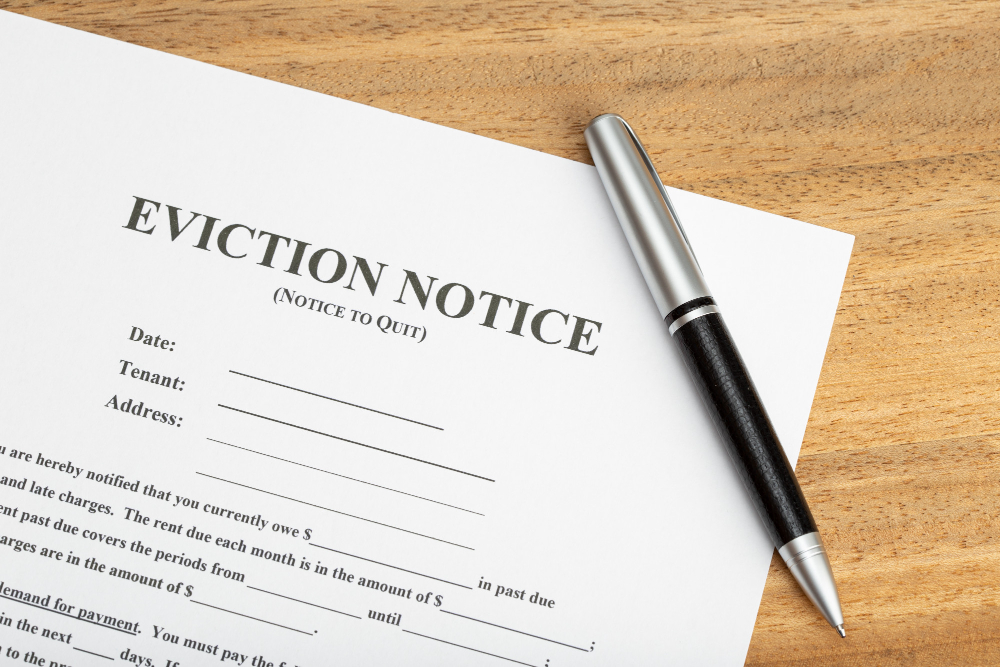As a landlord in New Jersey, understanding the nuances of eviction laws is crucial to maintaining a lawful and successful rental business. Wrongful evictions can lead to significant legal and financial repercussions, potentially damaging your reputation and profitability. This detailed guide aims to provide landlords with comprehensive knowledge about wrongful evictions in New Jersey, helping you navigate the eviction process correctly and avoid common pitfalls.

What Constitutes a Wrongful Evictions in New Jersey?
A wrongful eviction occurs when a landlord attempts to remove a tenant from a rental property without following the legal procedures mandated by New Jersey law. This can include evicting a tenant without proper notice, bypassing court proceedings, or evicting a tenant for illegal reasons such as discrimination or retaliation.
Legal Grounds for Eviction in New Jersey
Before delving into wrongful evictions, it’s essential to understand the legal grounds for eviction in New Jersey. Landlords can legally evict tenants for several reasons, including:
Non-payment of Rent
If a tenant fails to pay rent, the landlord can issue a notice to quit, demanding payment within a specified period. If the tenant does not comply, the landlord can proceed with eviction.
Violation of Lease Terms
Tenants who breach the terms of their lease, such as causing significant damage to the property, engaging in illegal activities, or violating occupancy limits, can be evicted.
End of Lease Term
If the lease term ends and the landlord decides not to renew it, the tenant must vacate the property.
Personal Use or Sale of Property
Landlords may evict tenants if they or their immediate family members intend to occupy the property, or if the property is being sold.
Proper Eviction Procedures
To avoid wrongful eviction claims, landlords must strictly adhere to the following procedures:
Notice Requirements
Provide the tenant with a written notice that clearly states the reason for eviction and the time frame for compliance. The type of notice and notice period depend on the grounds for eviction:
- For non-payment of rent, a 30-day notice is required.
- For lease violations, a notice specifying the breach and giving time to rectify it is necessary.
- For personal use or sale, a 60-day notice is typically required.
Filing an Eviction Complaint
If the tenant does not comply with the notice, file a complaint with the local New Jersey court. This initiates formal eviction proceedings.
Court Hearing
Attend the court hearing where both the landlord and tenant can present their case. Ensure you have all necessary documentation, such as the lease agreement, notices, and any correspondence with the tenant.
Warrant for Removal
If the court rules in favor of the landlord, a warrant for removal will be issued. Only a court officer is authorized to carry out the eviction.
Key New Jersey Eviction Laws and Regulations
Understanding specific New Jersey laws and regulations is essential for landlords:
New Jersey Anti-Eviction Act
This act provides tenants with robust protections against eviction, outlining the specific circumstances under which eviction is permissible. It also mandates proper notice and court procedures to ensure due process.
Rent Control Ordinances
Some New Jersey municipalities have rent control ordinances that regulate rent increases and provide additional protections for tenants. Landlords must be aware of and comply with these local regulations.
Retaliatory Eviction Law
New Jersey law prohibits landlords from evicting tenants in retaliation for exercising their legal rights, such as filing a complaint about housing conditions or joining a tenants’ organization.
Discrimination Laws
Under both federal and state laws, including the Fair Housing Act and the New Jersey Law Against Discrimination, evicting tenants based on race, religion, gender, family status, disability, or other protected classes is illegal.
Common Mistakes Leading to Wrongful Evictions
Here are some scenarios that might constitute a wrongful eviction in New Jersey:
Self-Help Evictions
Changing locks, removing tenant belongings, or shutting off utilities without a court order is illegal.
Inadequate Notice
Failing to provide proper notice or not adhering to the required notice period can invalidate the eviction process.
Retaliatory Evictions
Evicting a tenant in response to them exercising their legal rights, such as filing a complaint about property conditions or joining a tenant’s union, is prohibited.
Discriminatory Evictions
Evicting tenants based on race, religion, gender, family status, disability, or other protected classes is illegal under the Fair Housing Act.
Landlord’s Defense Against Wrongful Eviction Claims
Landlords accused of wrongful eviction can defend themselves by demonstrating:
Compliance with Legal Procedures
Providing evidence that all required legal steps were followed correctly.
Legitimate Grounds for Eviction
Showing that the eviction was based on valid legal grounds, supported by documentation and evidence.
Good Faith Actions
Proving that the eviction was not retaliatory or discriminatory and was conducted in good faith.
Importance of Legal Counsel
Navigating eviction laws can be complex for both tenants and landlords. Seeking legal assistance from a qualified attorney specializing in landlord-tenant law can help ensure that your rights are protected. Whether you are facing eviction or considering evicting a tenant, an experienced lawyer can provide guidance and representation throughout the process.
Wrongful evictions in New Jersey are a serious matter with significant legal implications. Both tenants and landlords must understand their rights and responsibilities to avoid costly legal battles and ensure a fair and lawful resolution. If you are dealing with an eviction issue, consulting with a knowledgeable attorney can provide the support and clarity needed to navigate this challenging situation.
For personalized legal advice and assistance with eviction matters in New Jersey, contact Sammarro & Zalarick. Our experienced landlord and tenant attorneys are here to help you understand your rights and options, ensuring the best possible outcome for your case.
Contact a Landlord Lawyer in New Jersey Today!
At Sammarro & Zalarick, we specialize in landlord-tenant law, providing expert legal services to both landlords and tenants across New Jersey. For expert legal guidance and support contact us today either by filling out the online form or calling us at (973) 478-1026 to schedule a FREE consultation.
